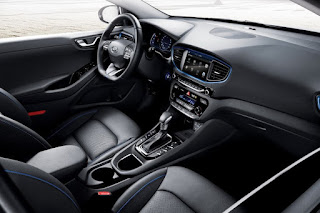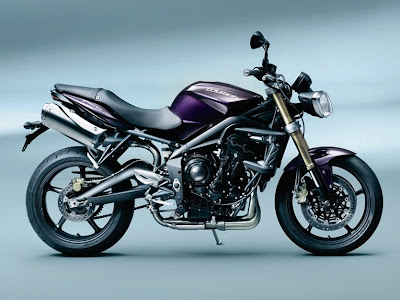The Hyundai Ioniq gets set for a Geneva debut
With its all-new Ioniq, Hyuindai is building one car but offering a choice of three electrified power sources. That's a smart move, because the willingness of buyers to abandon fossil fuels varies enormously.
The line-up starts with the Ioniq Hybrid. This model combines a 103 bhp (77 kW / 105 PS) 1.6 litre Kappa four-cylinder petrol engine, a 43 bhp (32 kW / 43 PS) electric motor and a 1.56 kWh lithium-ion polymer battery pack which is housed beneath the rear seats.
Delivered via a six-speed double-clutch gearbox, the total system output of 138 bhp (103 kW / 141 PS) plus 265 Nm (195 lb/ft) of peak torque produce a 115 mph (185 km/h) top speed. Although official efficiency figures haven't been confirmed, Hyundai is targeting CO2 emissions of 79 g/km.
Next up is the Ioniq Plug-in. As well as offering better flexibility (especially in areas with an established recharging infrastructure), it should become eligible for subsidies such as the UK government's Plug-in Car Grant.
While the Ioniq Plug-in shares the Ioniq Hybrid's internal combustion engine and transmission, the other powertrain components are significantly enhanced. Indeed, an upgraded 60 bhp (45 kW / 61 PS) electric motor and an 8.9 kWh battery pack result in a claimed pure-electric range of around 30 miles (50 kilometres). However, recharge times remain unknown for now.
Completing the trio is the Ioniq Electric. As that name suggests, it relies on just a 118 bhp (88 kW / 120 PS) electric motor and a 28 kWh battery pack. Expected range is a fairly acceptable 155 miles (250 kilometres), but again nothing has been revealed about how long recharging will take.
All three versions of the Ioniq are going to appear at next week's Geneva International Motor Show. On-sale dates and prices have yet to be announced.
Related posts:
Hyundai teases the Ioniq
Genesis offers a preview of its new G90
The line-up starts with the Ioniq Hybrid. This model combines a 103 bhp (77 kW / 105 PS) 1.6 litre Kappa four-cylinder petrol engine, a 43 bhp (32 kW / 43 PS) electric motor and a 1.56 kWh lithium-ion polymer battery pack which is housed beneath the rear seats.
Delivered via a six-speed double-clutch gearbox, the total system output of 138 bhp (103 kW / 141 PS) plus 265 Nm (195 lb/ft) of peak torque produce a 115 mph (185 km/h) top speed. Although official efficiency figures haven't been confirmed, Hyundai is targeting CO2 emissions of 79 g/km.
Next up is the Ioniq Plug-in. As well as offering better flexibility (especially in areas with an established recharging infrastructure), it should become eligible for subsidies such as the UK government's Plug-in Car Grant.
While the Ioniq Plug-in shares the Ioniq Hybrid's internal combustion engine and transmission, the other powertrain components are significantly enhanced. Indeed, an upgraded 60 bhp (45 kW / 61 PS) electric motor and an 8.9 kWh battery pack result in a claimed pure-electric range of around 30 miles (50 kilometres). However, recharge times remain unknown for now.
Completing the trio is the Ioniq Electric. As that name suggests, it relies on just a 118 bhp (88 kW / 120 PS) electric motor and a 28 kWh battery pack. Expected range is a fairly acceptable 155 miles (250 kilometres), but again nothing has been revealed about how long recharging will take.
All three versions of the Ioniq are going to appear at next week's Geneva International Motor Show. On-sale dates and prices have yet to be announced.
Related posts:
Hyundai teases the Ioniq
Genesis offers a preview of its new G90



+Front+Side.jpg)




+Front+Side+1.jpg)

Comments
Post a Comment